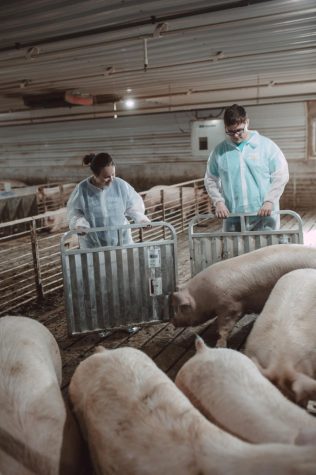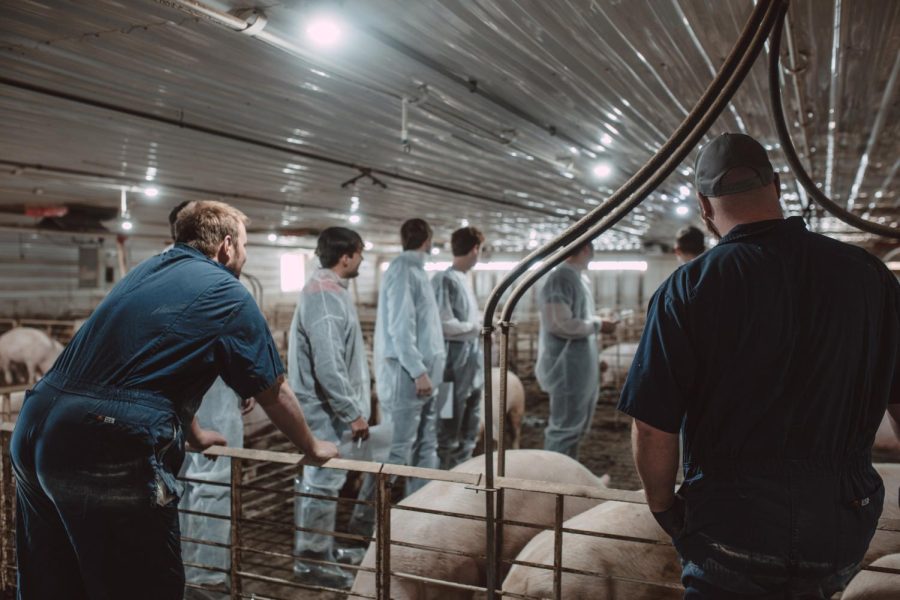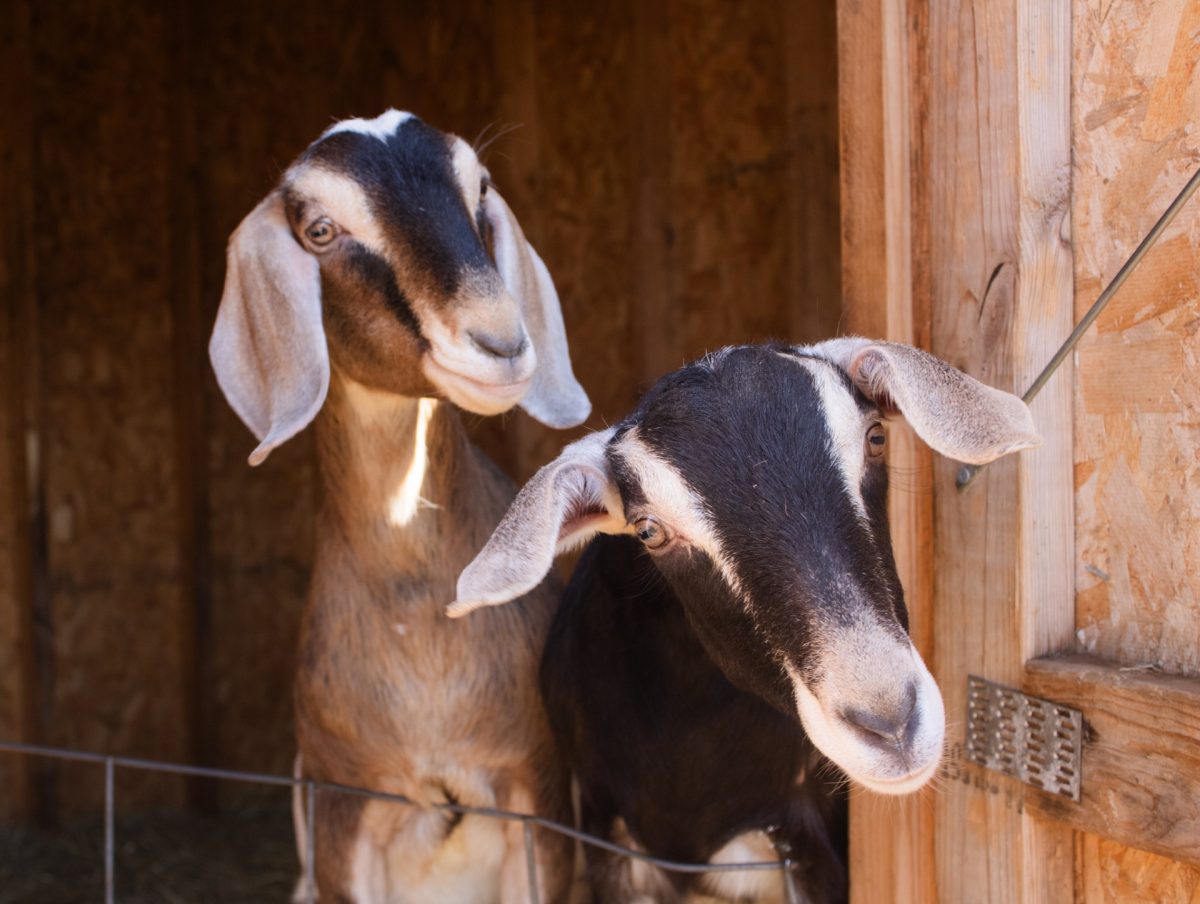The Impact of Proposition 12 on Local Hog Farmers
May 9, 2023
Michael Walsh from Newell, Iowa, wakes up each morning around 6:30 a.m. He leaves his house around 7:00 a.m. He then begins his day by driving to a hog site.
Walsh works for a company called Nutra Tech. Nutra Tech was founded in 1994 by Rusty Kosky. This company is family-owned and has been around for 25 years. They currently employ around 200 people in the swine industry.
“We have approximately 35,000 sows… Our sow farms are run very well… Our animals are very safe and have great diets. They live very comfortably right now,” said Kosky.
“My job as a supervisor… it depends on the day; I have various activities to do each day. Recently, I’ve been spending a lot of time processing piglets, a part of which involves assessing the health and structural soundness of each individual piglet,” said Walsh.
Walsh has been working in the hog farm industry for around 18 years. He loves his job and will continue to do it until he no longer can. That day may be coming sooner than later.
Walsh said, “I’ve always loved animals and always had them. I’ve always loved the agriculture industry and livestock. I enjoy the aspect of just being around animals.”
A new California law, Proposition 12, has the potential to impact this lifestyle and line of work. This would affect the sows (mother pig that has given birth at least once) that are housed in buildings like the ones owned by Nutra Tech. The law would require hog farmers who want to sell to the California market to increase spacing for each sow by 71%.
California does not have many hog sites but the state is 13% of the national pork consumption.
“Proposition 12… our feelings are we aren’t sure how one state could dictate livestock production in another state and change your livelihood… We are against any state making regulations about it,” said Kosky.
Many pork producers are worried about the costs if this law goes into effect. Proposition 12 would have major impacts on companies involved in pork production.
Kosky estimates “Approximately 8.5 to 9 million dollars to update their sow facilities to meet new regulations requirements,” said Kosky. “It’s very hard to make the costs of changing facilities back for a smaller company as we can’t sell our meat at a higher price,” Kosky added.

These new regulations about adding more space for sows can cause issues within the hog sites. The reason the sows have limited space is for the safety of the piglets (baby pigs) and the safety of the workers. When sows have their babies, they become highly aggressive towards workers and other sows trying to protect their babies. This leads to fights breaking out between sows. This is why they are separated. When it comes to workers, they may get attacked for trying to doctor the piglets.
“It doesn’t improve quality and adds more labor intensive for the workers,” said Kosky. “We feel that putting sows together would be harder on the sows… Reproduction rates go down when housed in larger areas,” Kosky added.
Proposition 12 is currently sitting in the Supreme Court which will decide if it is constitutional or not. The results of the hearing will be announced this month.








